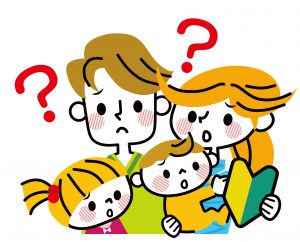Family psychologist and parent, Bonamy Oliver, discusses how messages about parenting could be impacting children and young people.
Another article about the impact of children being home from school is prominent on my media feed this morning. As a parent and a family psychologist, I know the story all too well and I fully support its exposure: as home, school and work boundaries blur and as social support is restricted, the heady mix of family stress and proximity intensifies the challenge of being a parent, and – shame on you, Society – women are hit hardest.
And now, when it seems like they have hardly been back, when many have been out of school anyway, here come the long school holidays. Brace yourselves.
Parents vary in how they feel about being a parent (so too, children vary in how they make parents feel about it). Nevertheless, all parents experience moments from ‘tricky’ to ‘tearing-my-hair-out-difficult’. The message is: Not feeling it today? It’s ok. You are not alone.
Just hearing this message can be a valuable form of social support for parents. Look no further than the rise in ‘imperfect parent’ blogs and articles to see a demonstration of parents’ need for such normalisation of their negative feelings.
But lately I have been troubled by a new thought. Who else is listening?
Messages about parenting being a challenge are everywhere: online, in the press, as a meme…yet, despite continual concern about children and young people’s access to inappropriate content on other matters – and subsequent impact on their wellbeing – it suits us to ignore the fact that, though designed for parents, these are messages that reach our children.
We are stuck between a rock and a hard place: parents need to hear the message, children really don’t.
The question is, how do children process the messages that so relieve parents?
The answer? We don’t know, but it’s almost certainly not in the same way that parents do. For most (not all, but most) parents, the relief (“It’s not just me”) comes in combination with a buffer – that is, an underlying knowledge that the challenges of being a parent are in a peculiar way independent of being the parent of this child. An internet search for “I love my children, but” brings 2.7m+ hits.
Without this buffer, what do children hear? That parents hate being parents?
It’s not a problem for children to know that their parents would rather not clear up their vomit, or eat partially masticated banana, or want to play camel rides at 5 a.m. (Us: “What does a camel say?”; 3-year old: “Mmruurghhhh”).
But to feel like they’re not a welcome addition to their parents’ lives? That’s very different.
I have my moments of frustration and exhaustion as a parent. I’m not proud of them and am still less proud that my teenager knows about them. Evidence enough that I too need to hear the “It’s ok” message sometimes. But, ultimately, the important part for her to know is that it has nothing to do, in any real sense, with being a parent to her. When I think of a lifetime in a relationship with her, my heart sings. She is my daughter, I am her mum. It’s hard, but it rocks.
How do we get much-needed messages out to parents while protecting our children? Maybe it’s as simple as being open with our young people: “It’s not always easy to be a parent, but we wouldn’t have it any other way”.
About the author
Dr Bonamy R. Oliver is an Associate Professor in Developmental Psychology at UCL Institute of Education, University College London where she leads the The Nurture Lab, investigating the role of family and school in children’s socio-emotional development and mental health whilst considering the interplay of genetics and experience.



